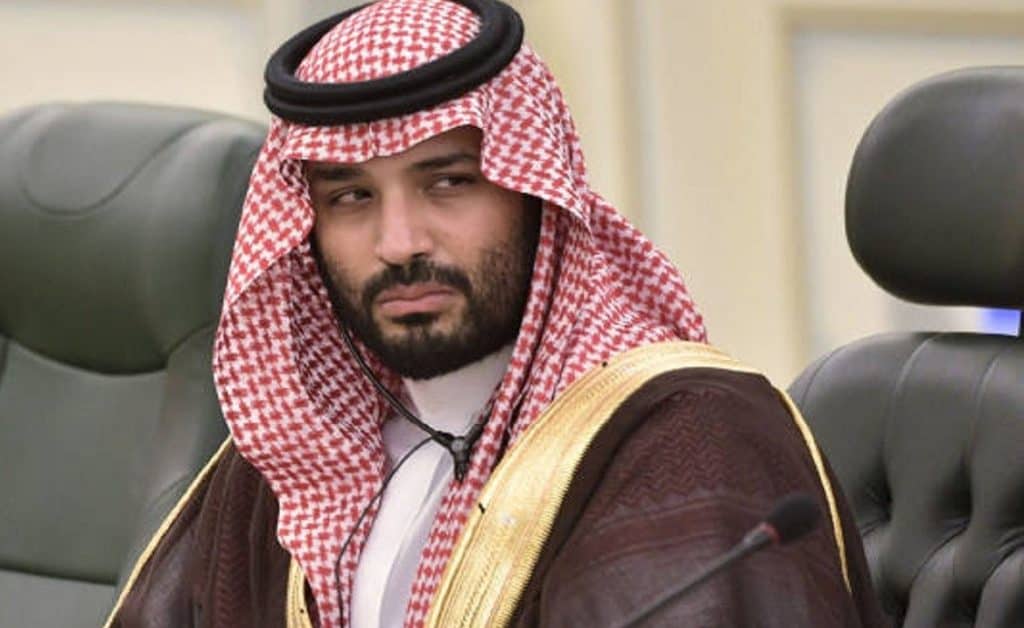By Denis Korkodinov
The COVID-19 pandemic and catastrophic drop in oil prices could cause a sharp drop in the status of Saudi Arabia’s crown prince, Mohammed bin Salman, in the face of unprecedented pressure from members of the royal family and ordinary citizens .
The beginning of 2020 was one of the most difficult times for Riyadh, due to a series of problems that shocked the kingdom. First, due to the sharp drop in world oil demand, the Saudis have been forced to start transforming their model of economic development, which has shown the state’s inability to meet the basic needs of the population in a crisis. In addition, the drop in “black gold” prices created a significant deficit in the state budget. Therefore the further existence of the monarchy proved to be dependent on external financial assistance, including the International Monetary Fund and the United States.
However, the Saudi economy has faced an unprecedented recession caused by the spread of the coronavirus, which has led to the quarantine of over 30,000 citizens of the kingdom and around 200 people have been killed. As some analysts note, a similar crisis, associated mainly with an unstable economic situation, can have extremely negative consequences on the political field of Riyadh and, in particular, on the Crown Prince Mohammed bin Salman personally.
It is worth noting that Mohammed bin Salman’s political career in the crown prince state began in 2017 with public guarantees of economic and political reforms under the banner of democracy. The son of the Saudi monarch has made efforts to receive maximum support from the main influence groups both within the country and abroad.
As a result, the heir to the throne received a huge vote of confidence from local communities and international partners who dreamed of seeing Saudi Arabia as a democratic and independent state. In turn, an alliance with the White House administration has allowed Riyadh to have certain guarantees of stability. However, a sharp drop in world oil prices and the coronavirus pandemic have led to the need to reduce the announced reform package, as well as to take severe measures to save budgetary funds.
Consequently, Saudi Arabia was forced to return to an aerial government style, which resulted in increased protests between representatives of the national establishment and leaders of public opinion. Muhammad bin Salman has been heavily criticized for slowing down the process of westernization of the kingdom and for not being able to guarantee the implementation of the Saudi Renaissance project.
Saudi Arabia’s state budget deficit due to the coronavirus pandemic currently exceeds $ 9 billion. This deficit has only formed in the past three months: from February to April 2020, inclusive. At the same time, according to experts, the situation in the kingdom’s economy could worsen further with the adoption of anti-crisis measures, so the budget deficit could increase by at least 5 times by the end of the year. Under such conditions, Riyadh is forced to temporarily abandon the reforms proposed by Muhammad bin Salman and to focus his main attention on reducing costs, mainly in the social sphere, which, of course, undermines the authority of the crown prince.
First of all, expenses related to financing the activities of tribal leaders loyal to the A-Saud dynasty are subject to reduction. Thanks to this well-paid support, Mohamed bin Salman was able to have strong support among local communities. But now that the funding has plummeted, tribal leaders have begun to show concern and look for ways to get the Saudi opposition in the hope that they will pay generously for their services.
As a result, the Crown Prince quickly began to lose his internal allies, which could later become a major problem if the conditions for the next coup d’état in Riyadh were formed. In turn, Washington, seeing the difficult situation of Muhammad bin Salman, is not ready to protect him. Additionally, representatives of the White House administration in April 2020 held at least two secret meetings with members of the Al-Saud royal family in order to determine an alternative candidate for the Saudi throne.
Of particular concern to the local elite was the Crown Prince’s ambitious plan to build a “city of the future” in the northern part of the kingdom. This city was called Neom and its construction cost the Saudi treasury half a trillion dollars. However, despite the fact that the construction project was announced about 2 years ago and that huge funds have been allocated from the state budget of the Saudi monarchy for its financing, the construction of Neom is still in the initial phase.
Among other things, local tribes have reacted in an extremely negative way to the practice of forced eviction from the territory in which the construction of the “city of the future” is planned. A clear example of this was the story of Abdul Rahim Ahmad Mahmoud al-Hwaiti, who refused to leave his home to make room for the construction of Neoma. He was killed and presented as a terrorist just because he interfered with the implementation of the construction project.
Meanwhile, Mohammed bin Salman is still determined to organize a series of ambitious transformations in the kingdom. Despite the failures associated with the manifestations of the global crisis and poor governance, experts believe that the crown prince of the Saudis has great potential to modernize the state. However, the question remains: is there enough money for this? .
(The opinions expressed in this article are solely those of the author and do not necessarily reflect the views of World Geostrategic Insights)







